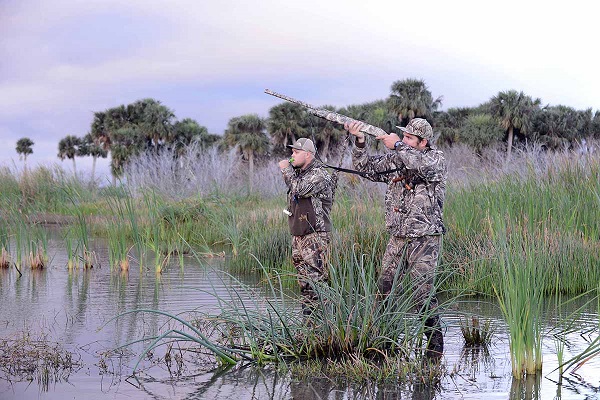EarthTalk®
From the Editors of E – The Environmental Magazine

American hunters pay almost $800 million a year towards conservation programs through the purchase of state hunting licenses and fees. Credit: Tim Donovan for FWC, FlickrCC
Dear EarthTalk: Are hunters really the biggest conservationists in America? – Joe W., Raleigh, NC
Hunters do play a large part in conservation efforts across the U.S. through their taxes, licenses and donations. In fact, the National Wildlife Refuge System itself was founded by a hunter: President Theodore Roosevelt. That being said, the mere act of hunting alone is not conservation.
While one can conserve an animal’s pelt, meat, or the memory of that animal, shooting and killing an animal, of course, does not mean that it has been conserved. However, hunters take action outside of hunting in order to maintain the species’ health, environments and numbers in which they hunt. In this regard, not all hunters are conservationists, but many become conservationists through hunting.
Most of the U.S. government’s funding for conservation comes from hunters. The U.S. Fish and Wildlife Service raises money for wetland habitat protection through its program called “Duck Stamps.” Federal Duck Stamps are required to be purchased by all waterfowl hunters, but they can also be bought by anyone who would like to contribute to conservation.
Since their creation in 1934, Duck Stamps have helped conserve nearly six million acres of habitat.
They also serve as a free pass into any national wildlife refuge that charges an entry fee.
Additionally, according to the Rocket Mountain Elk Foundation (RMEF), hunters pay $796 million a year towards conservation programs through their state licenses and fees.
RMEF is largely made up of hunters, and along with other similar groups, they estimate that they have added around $440 million a year to conservation efforts.
Another federal tax on guns, ammo, bows and arrows generates $371 million a year towards conservation.
A survey conducted by the U.S. Fish and Wildlife Service showed that the percentage of Americans who hunt has halved over the past 50 years, and that the decline continues to accelerate.
Because hunters provide much of the funding to government conservation programs, the decreasing popularity of the pastime is taking a toll on efforts by state and federal agencies to implement wildlife habitat restoration plans and related activities for the benefit of wildlife.
There are some who see this decline in hunting as a positive.
People for the Ethical Treatment of Animals (PETA), for example, published a detailed article citing the main reasons why they believe sport hunting is cruel and unnecessary.
They point out that a substantial percentage of animals hunted are shot but not killed causing an unnecessary amount of pain and suffering.
Additionally, they argue that while natural predators maintain the balance of an ecosystem by killing the sickest and weakest individuals, sport hunters often try to aim for large, healthy animals for better bragging rights.
It is undeniable that hunters contribute to conservation efforts, but the sport and act of hunting itself has proven to be a controversial subject for many.
CONTACTS:
Duck Stamps, fws.gov/birds/get-involved/duck-stamp.php;
Hunting is Conservation – Paid for by Hunters, rmef.org/elk-network/hunting-conservation-paid-hunters/#:~:text=Through%20state%20licenses%20and%20fees,arrows%20to%20help%20fund%20conservation;
Why Sport Hunting is Cruel and Unnecessary (PETA), peta.org/issues/wildlife/wildlife-factsheets/sport-hunting-cruel-unnecessary/.
EarthTalk® is produced by Roddy Scheer & Doug Moss for the 501(c)3 nonprofit EarthTalk.
See more at https://emagazine.com
To donate, visit https//earthtalk.org
Send questions to: question@earthtalk.org
